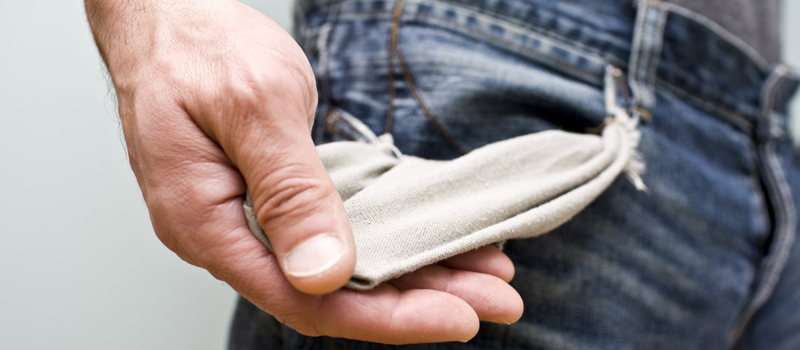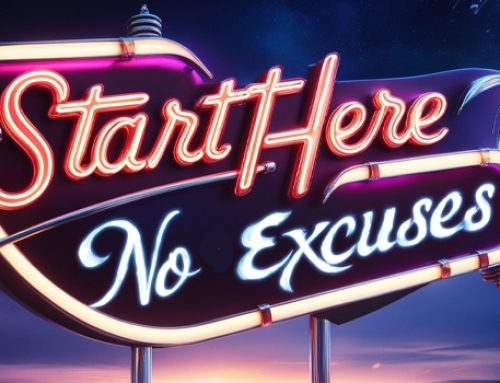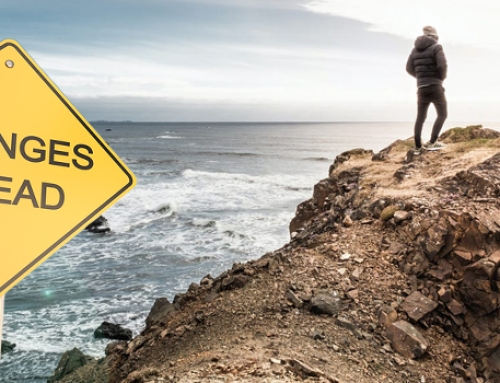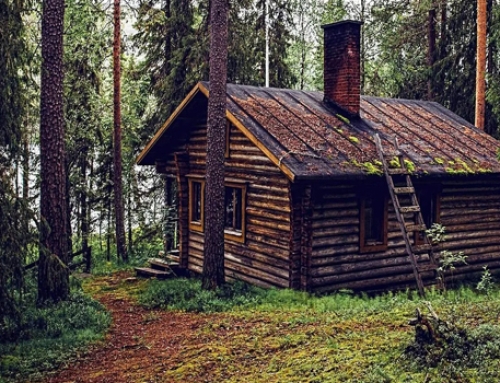Is This You?
Our public school systems in America have not prepared any of us for the realities of the real world. They have taught to the lowest common denominator and have not stressed what would actually be the skills you could use to be a productive citizen in your community. More so now because those who are looking to overthrow the system that our Founding Fathers put into place have infiltrated our educational institutions in a purposeful dumbing down of our children.
You then go to an overly burdensome over-priced college that again doesn’t teach you how to be successful in the real world, but only how to follow their socialist curriculum and get a grade for the regurgitation of it back to them. While there you take menial jobs that get you by but do nothing to build your skillsets that could be used later in life. And then there you are, after 5 years of running through meaningless hoops and working dead-end jobs with a ton of college debt and no actual real-life skills.
You plow ahead and get a job as a data analyst, or a telemarketer, or some other job that if push comes to shove could be done by an AI or a physical robot. Whether in manufacturing or some other industry it gets you a skill that if you were suddenly put out of it could not be transferred any wit to a real-life application. There you are, skilled in a job that may no longer exist, or doesn’t have any value to the community as a whole.
This description sadly makes up 80% of what people are being paid to do, and when the hard times come, and those positions become defunct, those that have followed that career path are going to be scrambling to find what they could do to put food on a table and a roof over their heads.
No Need to Despair
If this sounds even in the slightest familiar to you, and what you are now currently experiencing you are not alone. There are many who have thought that the hard times weren’t going to happen and those types of skills weren’t needed. Fear of the unknown, of what you could possibly do, what your future, your family’s future holds can seem overwhelming at the thought of it all. But with the simplest of steps, of actions, of study of practice you can learn a skillset that you can trade with, barter on, survive upon, and yes, even thrive with.
Here are several things you can take action upon right now and start getting experience in and have a full coffer of know-how when the time comes to move on from what you are doing now for income.
1. Put together a first-class first aid kit, learn first aid, and a good bedside manner
One can have the best gear in the world and three years of stored food but if you become hurt or sick, you will may not live long enough to see you way through. Put together a first class first aid kit and know how to use it. Get a good book on survival medicine and turn to it for advice as various ailments come up in day to day life. Learn how to heal with herbs and essential oils and put that knowledge into practice.
There are a lot of things wrong with the medical system in the United States but one thing that can be assured is that hospitals and Urgent Care Centers have to offer you a certain level of care even if you can’t pay right then. During a long emergency or SHTF scenario, running to the doctor or getting major modern medical care will be hard or impossible. There is also the cruel reality that even if some is available, it will go to those that are considered the most important or even more likely, those with enough money to be able to make people jump when they want to.
These facts mean that you those that can offer some medical care to others during a long emergency will be considered some of the most valuable people in the community.
A kind bedside manner is another skill that will make you stand out as a medical worker during SHTF. A lot of people will feel scared and hopeless if things are bad and the availability of painkillers may be low or nonexistent which will make some things harder to get through for everyone involved. You, even if you hadn’t gotten an MD or an RN to your name will need to be had by those in the community and if you know how to do the field triage, and the medical procedures you have experienced will be definitely needed.
2. Learn to forage, fish, or hunt (or all three)
Knowing how to make good use of food that is out there for the picking is a skill that doesn’t cost much more than some time and a guidebook of edibles in your area. There are classes and groups in many areas. Look for classes at community colleges, hiking and nature groups, and community centers. It may be easier for some to gain confidence by learning in a group or class. There are a lot of stories out there about eating the wrong thing that leads to irrational fears of all the food out there if you just start looking around.
Being able to supplement any diet with some extra protein is very helpful. Hunting and fishing is not as easy as it may look on Outdoor Life Channel and in some areas it is even more challenging because the game and fish are just not that plentiful near any habitations. I know that when we trout fish we hike in for an hour and a half to get a good hole because any closer and people have fished it out. You literally have to go the extra mile.
While shooting is usually the preferred means of hunting, some are skilled enough with bows to make a good go of it. Trapping is another option. You could make traps or buy some to put back for SHTF. Being able to do what our ancestors did to keep themselves fed, is a skill that bar whatever may happen, you know that you will be able to have a full stomach and healthy outlook come what may.
3. Learn multiple ways to start a fire and keep it going
A lot of preparedness sites promote learning how to start a fire. Indeed, fire making is important, but so is keeping the fire going. Practice keeping your fire going for hours at a time and in all sorts of weather conditions. Trust me, starting the fire is often the easiest part.
Try to think and use what may be the only things available in a desert circumstance, in a urban setting, or in wet conditions. The better you get on creating a source for warmth, cooking and safety the better off your stance will be when the hard times come down on you.
4. Locate local sources of water and learn to filter and purify that water
You may have to think outside the box when it comes to sourcing water, especially in the desert. There are no simple answers so get creative. Remember that canned goods are a source of water so in some areas, you may be better off storing canned goods than bulk foods. Whatever the source, make sure you know how to purify the water so it is safe to drink.
The processes of what it takes to ensure the purification of the water, the storage of water, and the sourcing of water in hard to find times. We can go a couple of weeks without food, but only a few days without water. And if you don’t want to be sick drinking out of puddles, and other dirty sources, drinking water is an essential.
5. Put together a sewing/mending kit and become proficient at sewing and mending by hand
For one reason or another, this skill is often missing from lists of survival skills. You will be surprised at how well a hand-mended garment will hold, even when performing arduous physical labor. Keep in mind that you are going to need needles large and small, thread in various weights, and scissors. Need some practice? Cut up a shirt or a pair of pants that are headed for the rag bag and mend them. Then, the next time you are cleaning house or working in the yard, wear them.
Keep in mind it isn’t only clothing that may need mending, any material, tarps, canvas, bags, packs, etc. all wear and tear. You being able to have the experience in getting these taken care of will be an advantage.
6. Train yourself in self-defense using your weapon of choice
This doesn’t just involve a gun or rifle either, and may not even be a traditional type of weapon. If you know chemicals and how they interact with each other if you know how to build gadgets a la A Team that can be included here.
Keep in mind the tactical and strategic defense is different in urban settings versus out in the country. Some of the principles are the same but there are some stark differences as well. Another skill is to learn to adapt lessons learned in the military to civilian situations. Many battles have been fought and detailed by historians, and although you may not have a bunch of red coats lined up for an assault, the lesson of the past can be giving you an advantage in the future. People that are in charge of tactics and defense need to be good enough with people to take on a more leadership role while exercising some level of patience with beginners.
Choose a weapon of your choicethat are you most comfortable with and learn how to use it. For some that will be a firearm, and for others it will be knives, batons, tasers, or martial arts. Whatever you choose, become comfortable with your choice of weapon and master how to use it.
8. Learn to shelter in place
Food, Shelter, and Self-Defense are the main things you need in a time of turmoil and chaos. Shelter survival will become a last ditch effort for many, if not most of us. That is why it is important to learn how to hunker down and wait out the disruptive event in the shelter of your own home. Learn how to board up windows, seal your home from a pandemic, and create a livable environment that will be at least modestly comfortable when conditions on the outside are austere, or worse.
9. Learn to cook from scratch using simple ingredients and how to preserve food
There was a time when most meals were prepared at home. Eating out at a restaurant was something many people only did if they were traveling or on a weekend. It was definitely not common for people to eat out every day.
Younger people often do not know how to cook anything beyond a quick box of something that you boil and add a packet or two of stuff to and mix.
Scratch cooking is a fun and delicious skill to learn if one stops always looking at meals as drudgery at the end of a long day. There are plenty of meals during good times that are nutritious and can be fixed in less than an hour total prep and cooking time. There are tons of books dedicated to 20-30 minute meals that are healthy.
There will be a lot of foods that require extensive preparation. Have you ever cooked beans without a pressure cooker? It takes a long time even if you soak them some.
Anyone can cook if they want to do so. From old cookbooks laying around, from the book of recipes that your mom or grandma gifted you, while there is still access to the Internet, there are thousands of sites dedicated to simple cooking. You may find that learning to cook more variety saves you money too because you eat out less. Losing weight is also easier when you have control over the ingredients and method of cooking.
A long time ago almost all the food people consumed over the winter was food they had put back during the Spring and Summer. Food preservation will always be a valuable skill to know. Don’t limit yourself to a single method or two either. Fermentation, canning, pickling, drying, smoking, and curing should all be learned.
10. Put together a robust tool kit and learn to fix things with common tools
Everyone needs to become a MacGyver wanna be. Master carpentry or plumbing or become a mechanic. Use odd bits of this and that to fix things that are broken to make them useable again. But first, gather around your tools and make sure they are set aside in one place so that you can get to them when you need them.
Be an all around handy person. Know how to fix things using some of the more common hand and battery powered tools available. You may want to consider building up a decent tool kit now because as those in the handy person business know, having the right tools will often get you the job.
11. Build a library of books that you can turn to as a reference when the grid is down
Regardless of the size of your digital library, also build a modestly sized library of print books. My choice includes books on survival medicine, foraging in the wild, using herbs, old-timey cooking, country living, bushcraft and more.
Be the source where people come for the past knowledge and having a library first electronically and eventually physically you will always have something that people will want to have and that can provide you the opportunity to barter with.
Don’t let present circumstances dictate who you are and what your future will hold. If you don’t have any workable skill at present, doesn’t mean you cannot get them in the near or distant future. It truly is up to you, and the matter of person, of human being you want to be. When the hard times come down and hit, it doesn’t make people what they are, it only shows more openly who they have been.






